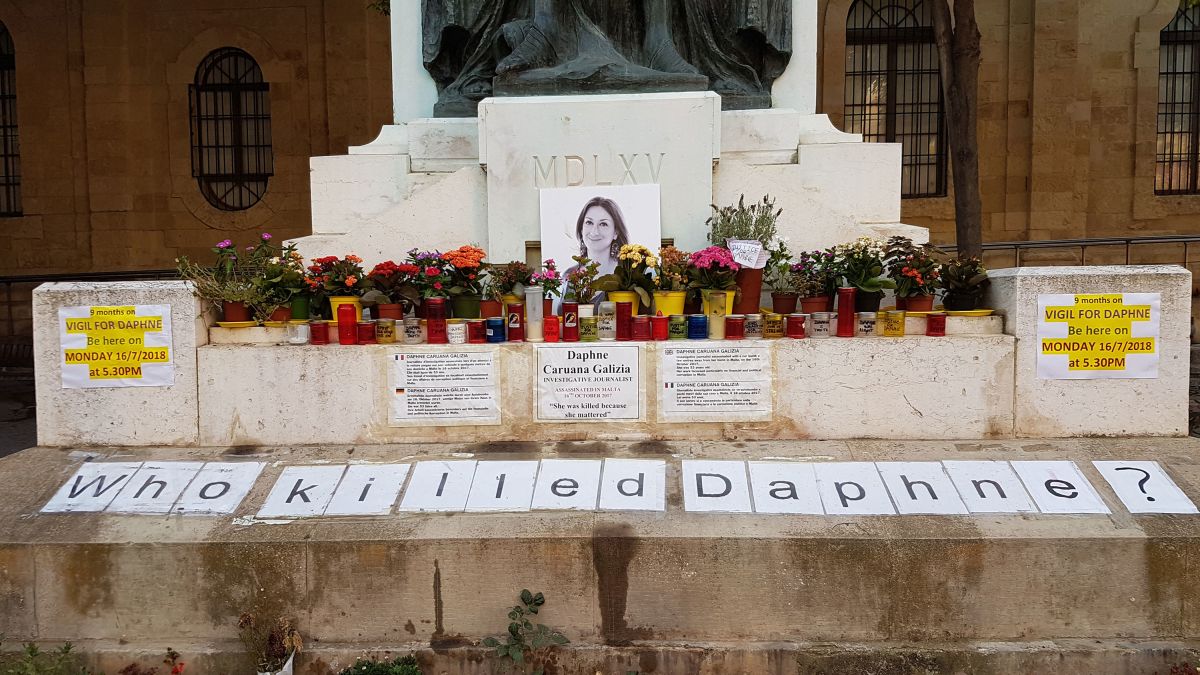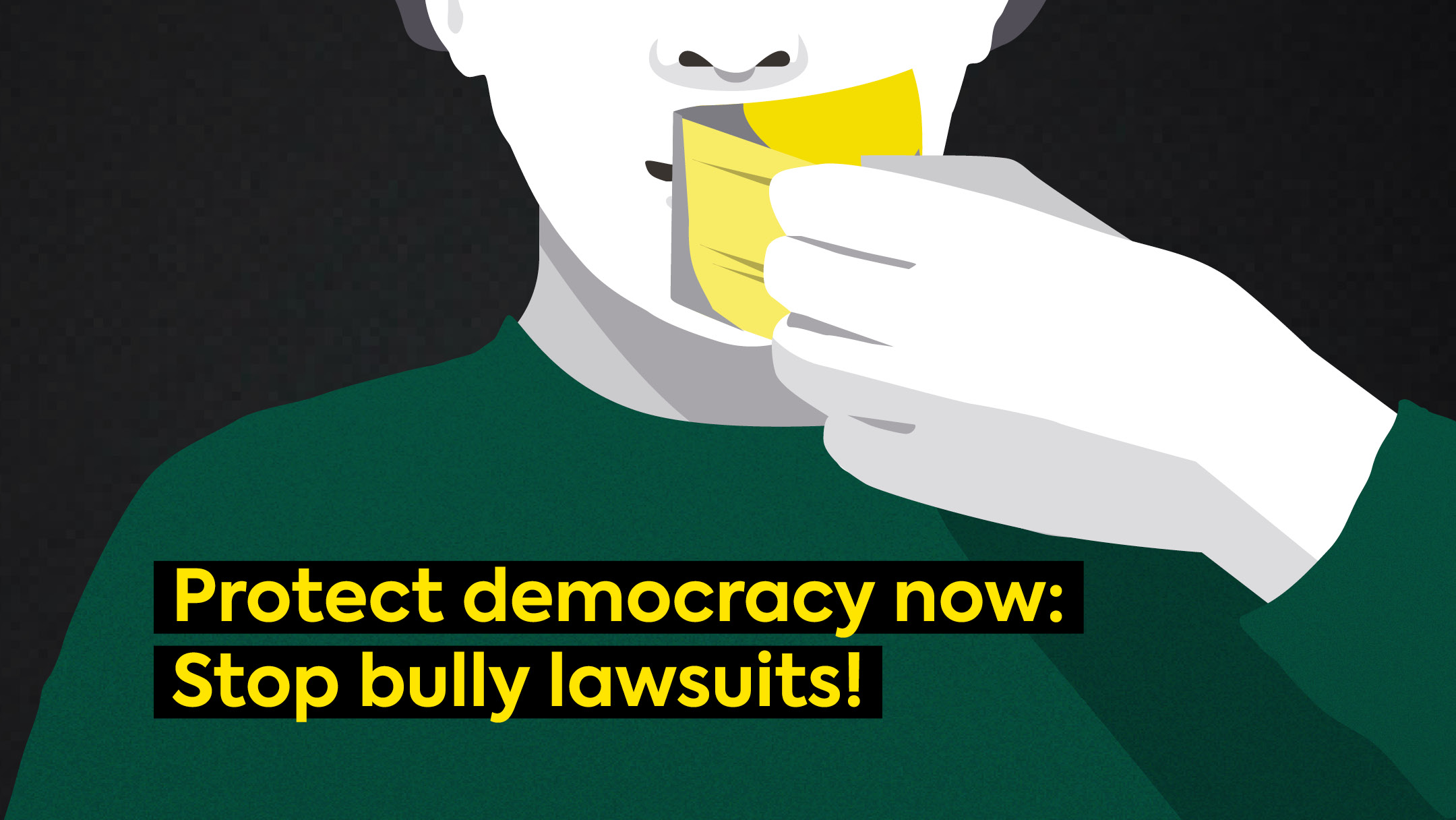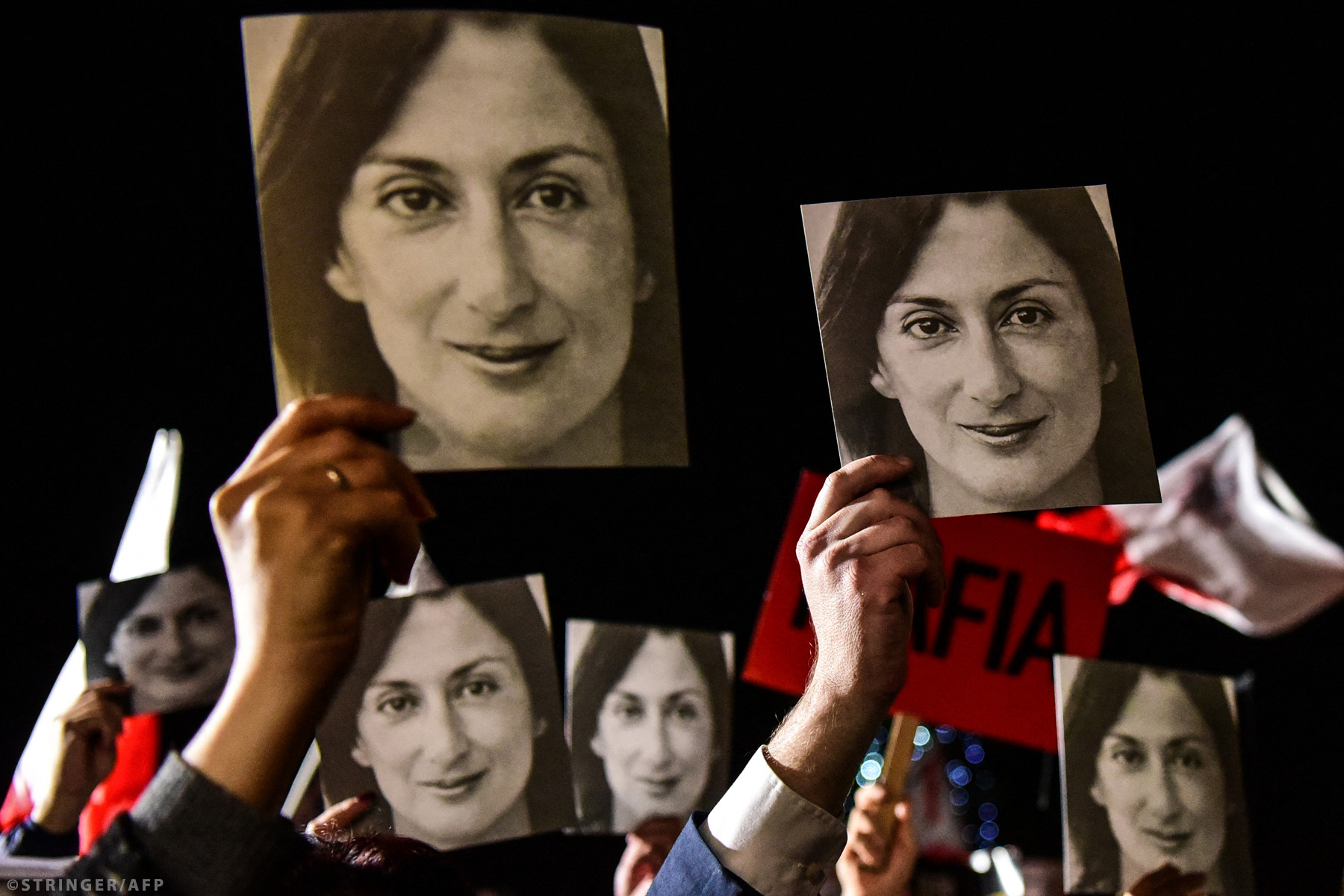By Evi Tsakali,
“Unstoppable in the pursuit of justice”; this is how the Daphne Caruana Galizia Foundation describes the Maltese journalist to whom it owes its name. She was active for over thirty years as a columnist, reporter, editor, and blogger. Throughout her career, she had received many forms of harassment because of her investigative journalism: her house was set on fire twice, and three of her family dogs were killed, being either shot, poisoned, or having their throat slit. Meanwhile, her assets were frozen multiple times as a form of intimidation, while she faced a number of frivolous lawsuits, primarily filed by MPs (both of the Government and the Opposition)…yet she persisted. Called the “one-woman WikiLeaks”, she uncovered networks of corruption not only in her homeland, but also abroad. Her investigations on the Panama Papers scandal instigated an early election by linking Joseph Muscat, the Maltese Prime Minister at the time, to that use of tax havens by the rich.
The latter would be one of the last things she would do; 16 October 2017 Daphne was assassinated by the triggering of an explosive device planted under her car seat outside her home in Bidnija, Malta. Two men, George and Alfred Degiorgio, have confessed the act and been convicted, however, many suspect that the incident is linked to top establishment figures, and Maltese businessman Yorgen Fenech awaits trial for accusations of having ordered the murder. The Maltese state is also responsible for the journalist’s death, having failed to recognize risks to the reporter’s life and take reasonable steps to avoid them. The frivolous lawsuits that Caruana Galizia was facing orchestrated her death; and -to the disgrace of those responsible- the liability for those cases have been passed to her three grieving sons.

Daphne’s fatal adventures were a characteristic example of SLAPPs. Strategic lawsuits against public participation (SLAPPs) “allow the rich and powerful to avoid being held accountable like the rest of us. They are used to stop journalists and civil society from investigating and publishing, draining their finances, time and resources in the process. Aside from serving as a block to journalists, they serve no public interest.” (Fox and Vasquez, 2023). The European Parliament, which has already dedicated its press office to Daphne’s memory, had vouched to back legislation in order to prevent such abusive litigation against journalists; and it did, by voting what became known as “Daphne’s law” last Wednesday (July 12th).

Like its namesake, that law has definitely some moxie; and maybe this is why the EU Council of Ministers will not take it. Daphne’s law sets minimum standards for anti-SLAPP legislations across the member-states, incorporating remedies consisting of a regime of sanctions as well as an early dismissal mechanism for such abusive cases. Nevertheless, it is not surprising that some EU governments benefit from -and sometimes even encourage- SLAPPs; from the Italian case of the anti-mafia writer Roberto Saviano to the usual suspects, namely Hungary and Poland, where SLAPPs against reporters and whistleblowers are quite the norm in the context of the degradation of the Rule of Law, justice reforms, and human rights violations, could we actually expect much from leaders that are essentially supposed to self-restrain? Since early June, the Council endorsed a more -as they put it- “general approach” to the Commission’s initiative, that removed many key elements of the legal framework. Andrew Caruana Galizia, Daphne’s son, wrote on the Financial Times:
“The tragedy of the Council’s compromise on ‘Daphne’s Law’ is not merely that it defeats its spirit or betrays the promise made to our family, but that what is left of it would not have protected our mother”
To the point that it depends on the member-states’ ministers, the future of Daphne’s Law seems quite bleak; we will soon see whether moxie is insatiable…
References
-
Hitting back against SLAPPs, euractiv.com. Available here
-
Who was Daphne Caruana Galizia? daphne.foundation. Available here
-
The EU must not lose its nerve on Slapps and honour ‘Daphne’s Law’, Andrew Caruana Galizia. ft.com. Available here




